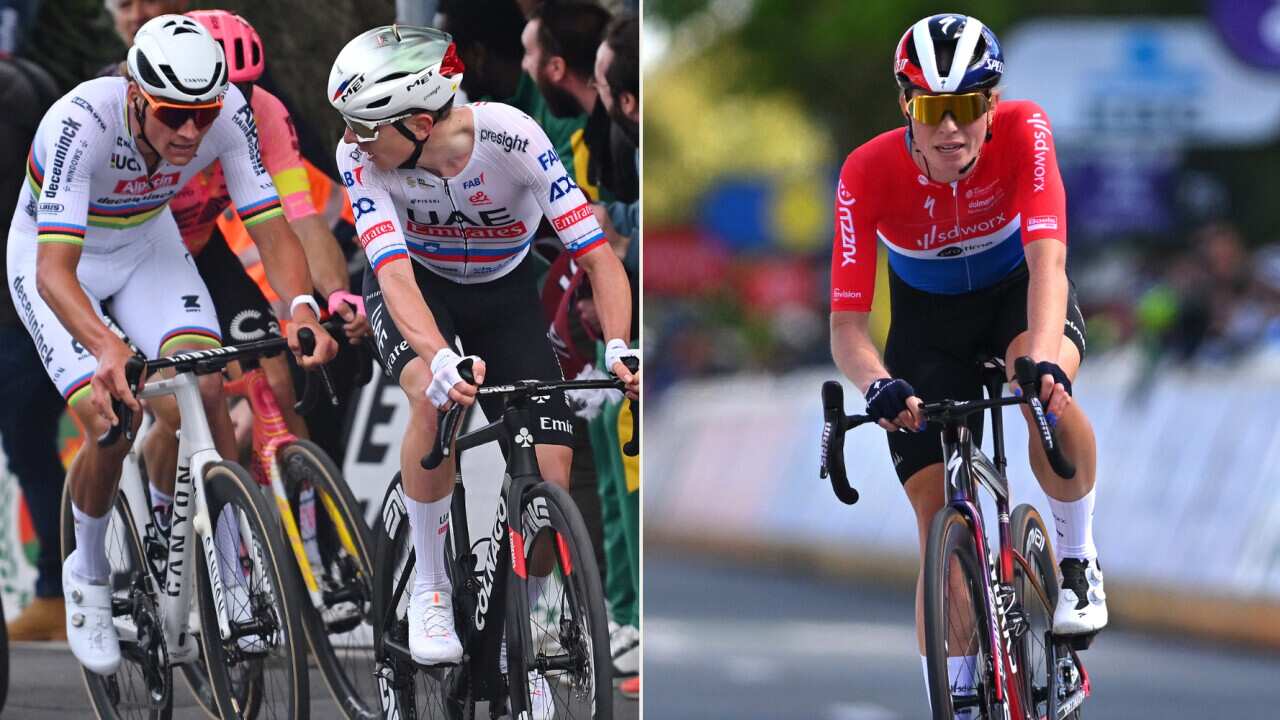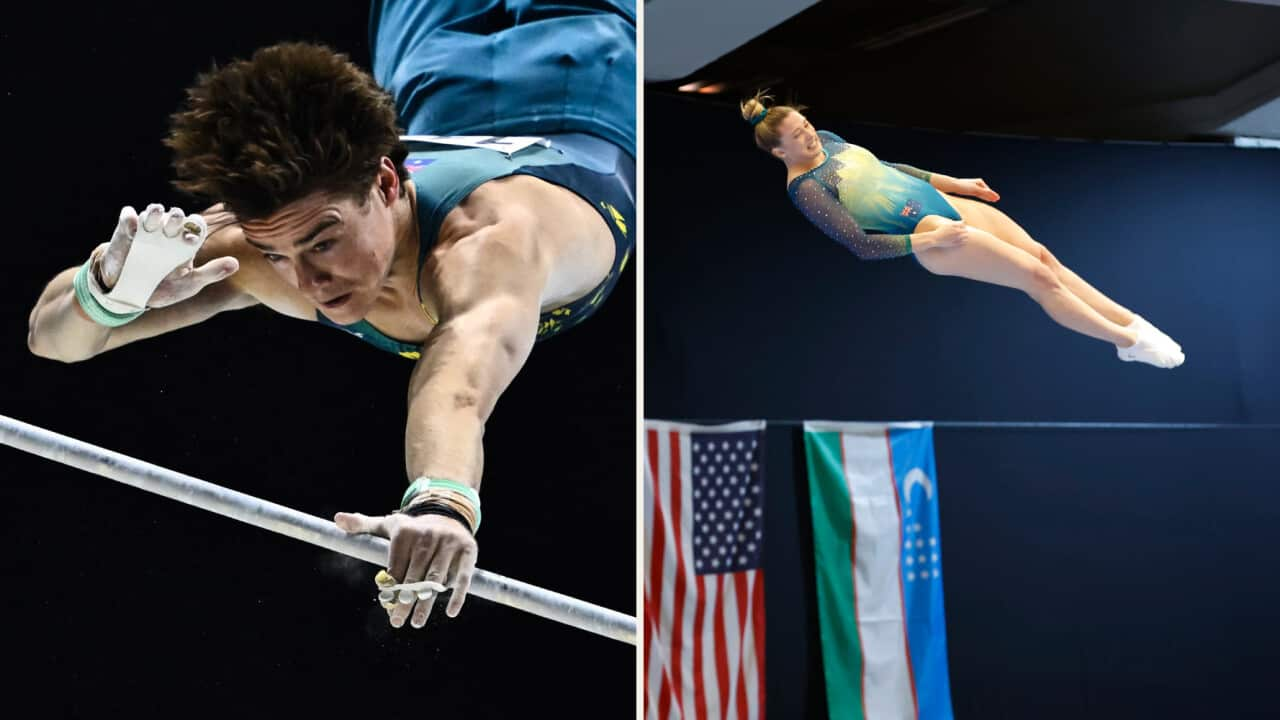Socceroos midfielder Ken Murphy admits he had given up hope of ever being part of the National Soccer League while he was playing for Melbourne Knights in Victoria's State League.
Murphy, who was born in Dundee in Scotland, came to Australia in 1977 as a raw 20-year-old seeking a new career path.
He signed for the Croatian-backed Knights and soon became a key player in the club's push to earn a place in the country's top league.
He helped the Knights win the state championship in 1978 and 1979 but the nearest he came to earning national recognition was when he was picked to play some representative matches for Victoria.
It was the platform he needed because after catching the eye with some strong performances as an attacking midfielder he drew the attention of the top clubs from Sydney and Melbourne.
And when South Melbourne came knocking in 1983 he had no hesitation in signing for the Greek-backed club that commanded strong support.
Murphy's career effectively changed overnight because a year later he helped his new club become champions of Australia and he established himself as a Socceroos regular.
"I had thought that my chance of playing in the NSL had gone after playing for a few years in the state league," Murphy, who is now 64, said.
"But after doing well in a few games for Victoria I got quite a bit of interest from a few NSL clubs. When South Melbourne offered me an opportunity I was only too happy to go to such a big club.
"Coach Rale Rasic had signed me but he struggled to implement the big changes he wanted to make at the club. After a short time he was replaced by Len McKendry who structured the team well.
"We had a strong team in 1984 and got to the grand final against Sydney Olympic. The atmosphere surrounding the two matches and the lead-up in the media were the closest I had come to the big time. We had two good crowds in both matches and we beat them at home and away and felt on top of the world. It was the start of an exciting time in the game for me."
Murphy was happy to talk about some of the main points of his career.
What are you doing now?
"I still work as a service manager of a dental supply company. I'm not involved with football any more. I go to Melbourne City matches and support them. They have been giving me and all Melbourne-based former Socceroos a free season ticket from day one when they were Heart, which is very nice of them."
Did you get the feeling when you were playing for the Knights that they were an ambitious club destined for bigger and better things?
"They were called Essendon Croatia when I came over from Scotland. They later became Melbourne Croatia before morphing into Melbourne Knights. They were an unbelievably ambitious club. The most aggressively ambitious I have ever been involved with. They wanted to win all the time and be number one. The people at the club treated me and my wife really well. It was fantastic to play for them. I enjoyed it immensely.
"At South Melbourne it was a different environment. At the Knights the ambition was right there in your face all the time but at South their ambition was a lot softer and I must say that they were more professional in the way they went about things ... not overly friendly people but very nice and pleasant."
What were the circumstances behind your move from South to Footscray after one match in 1987?
"I was getting older and I had missed many games in the previous year due to a knee reconstruction. The team had a poor 1986 and the club was looking to rebound the following year with some fresh blood. So here was this older guy who had just had a knee reconstruction and I missed out. It was just bad luck. The guy who replaced me - Paul Wade - went on to forge a fantastic career."
What was your favourite midfield role?
"I was a left-sided midfielder as a right-footer who loved to attack down the flank, especially when I was younger. As I grew older I was shifted towards the middle and I enjoyed the physical side of the game - taking on the big 'bullies' - but I was never comfortable there because it was too tight for my liking. I liked the open spaces."
You made your Socceroos debut against England in 1983. What do you remember of the two matches against Bobby Robson's team?
"England played three matches out here and I sat out the first one in Sydney that ended goalless. I do not remember much about the game. I was just very keen to get on the park and play. When I got my chance in the second match in Brisbane I felt a sense of achievement when I came on for Peter Katholos. We lost 1-0. I started in the third match in Melbourne and I was surprised to see the 'Kat' left out. I think he held a grudge against me for a while but it had nothing to do with me. Coach Frank Arok wanted a different mix, I suppose. We drew 1-1."
Robson complained about Arok's excessive defensive tactics after the draw in Sydney. Was that a fair call?
"Definitely not. Arok had a cautious mindset in that series but coaches always try to devise different ways how to play against different teams. It's what coaches do.
"For example, he introduced a back five in the series against England. Charlie Yankos, Steve O'Connor and David Ratcliffe formed a very solid and tough-looking central defence but fullbacks Alan Davidson and Graham Jennings were as attacking as can be. And you would not call guys like John Kosmina, Joe Watson, Dave Mitchell, Phil O' Connor defensive players, would you? I think Robson was having a bit of a whinge, to be honest."
Australia were involved in the infamous World Cup qualifier against Israel in Tel Aviv in 1985 in which you were sent off. Run us through that torrid match which you guys won 2-1.
"Arok the 'mad dog' wanted a 100 per cent effort from all the boys because he expected a very difficult match in a hostile environment. We had to be tough and seen to be tough. I remember a day or two before the game Arok, who knew that we would be watched by local media, told us to be overly committed at training and give the impression we wanted to kill each other because he wished to convey the message that we were a super physical side prepared for battle. Even though Oscar Crino was more ballerina than boxer and Watson never tackled a man in his life. The media bought it.
"The pitch was terrible and it was hard to control the ball. So it was very scrappy. I got booked twice, once for a soft foul in the first half and then I kicked the ball out late in the game to waste a bit of time. The sending-off of course meant I would miss the next game. We went on to win the group."
As a Scottish-born player, you must have been chuffed to face Scotland twice in the final playoff for the 1986 World Cup in Mexico.
"Would I have minded if it were Scotland, Brazil or Singapore? I really wanted to go to the World Cup. The game and atmosphere at Hampden provided an unforgettable experience with such a big crowd that included all my family. It was big event in my life, definitely."
You played under Les Scheinflug and Arok ... two very different characters who were both hellbent on leaving their mark on our game.
"The first time I got called up for a training squad was under Rudi Gutendorf and I was disappointed to see such a disorganised and amateurish set-up. But when I went to Singapore to play in the Merlion Cup under Les you could tell that everything was more professional, the way they operate in Europe. The only thing I didn't like about Les was that everything had to go through him. It was like a 'dictatorship'. Everything was mechanical on and off the field. Don't get me wrong, he was a perfectionist and for me it as a big step forward.
"Frank was a polar opposite. He demanded complete application but it was a much more relaxed atmosphere under him and his assistant Eddie Thomson. You felt a sense of ownership of it. Arok had some great ideas and Eddie was the one who carried them through."
You also had the privilege of playing against some top sides and great players who toured Australia. Which are the games that stand out for you?
"Looking back, Juventus came out here in 1984 and it was a fantastic experience for me to face such great players as Gaetano Scirea, Antonio Cabrini, Marco Tardelli and Paolo Rossi. Juve are a famous club and they obviously drew big crowds in Sydney, Adelaide and Melbourne.
"I grew up as a Manchester United fan so you can imagine how thrilled I was to play against them that same year. It was massive."
You coached Melbourne Knights in the NSL in 1991-92. You would have noticed a certain Mark Viduka coming through the ranks.
"Did I notice him? You couldn't help but noticing him. He was playing with the under-16s at the time and on Friday nights we used to play against the reserves and Viduka was a big lad and good enough to play for the reserves. He never trained with me but you could tell straight away by watching him that he was going to be a great player. Everybody at the club was talking about the 'big kid'.
"At the end of the season we went on a three-match tour of Fiji and took Viduka with us. He was a star and after that he went to the Institute of Sport. The rest is history."
Which is the highlight of your career?
"Playing Scotland in Glasgow was great even though we lost 2-0 but the return in Melbourne was even bigger. We could only draw 0-0 but the game was fantastic."
And the low point?
"Probably that time when I was left out of the South Melbourne team. That was as low and crappy as I ever felt."
And finally who are the best players you have played with?
"This is difficult to answer because players are so different. For example, I've played with Crino and Wade but how can you compare them? Oscar had the elegance and the technique and he never looked flustered. Paul sometimes looked clumsy and was not a great passer of the ball but his work rate was fantastic and his ability to get into the box to get on the end of things was amazing."
KEN MURPHY FACTFILE
Club career
1977-82: Melbourne Knights
1983-87 South Melbourne
1987-89 Footscray JUST
International career
1983-87: Australia (15 matches)
Honours
1984 NSL championship (South Melbourne)











